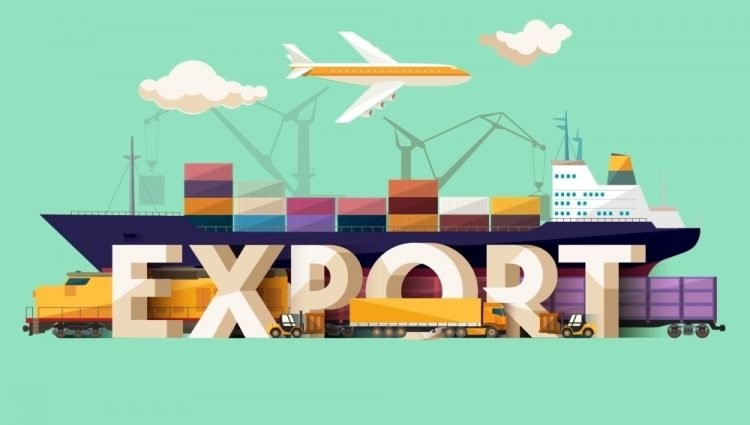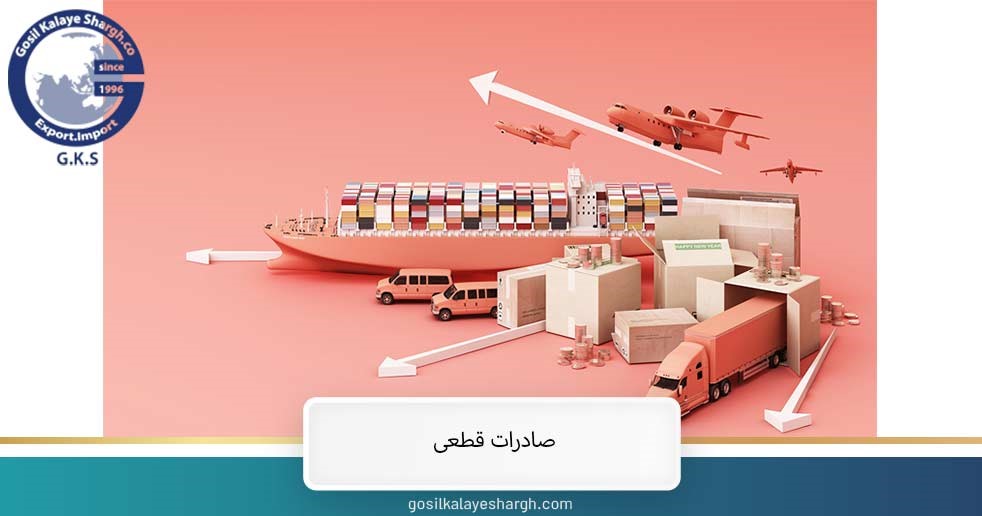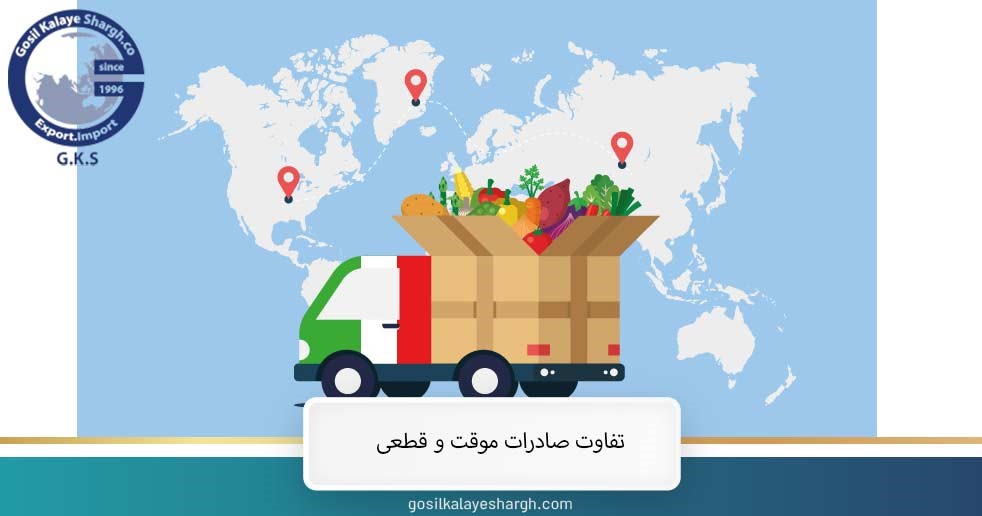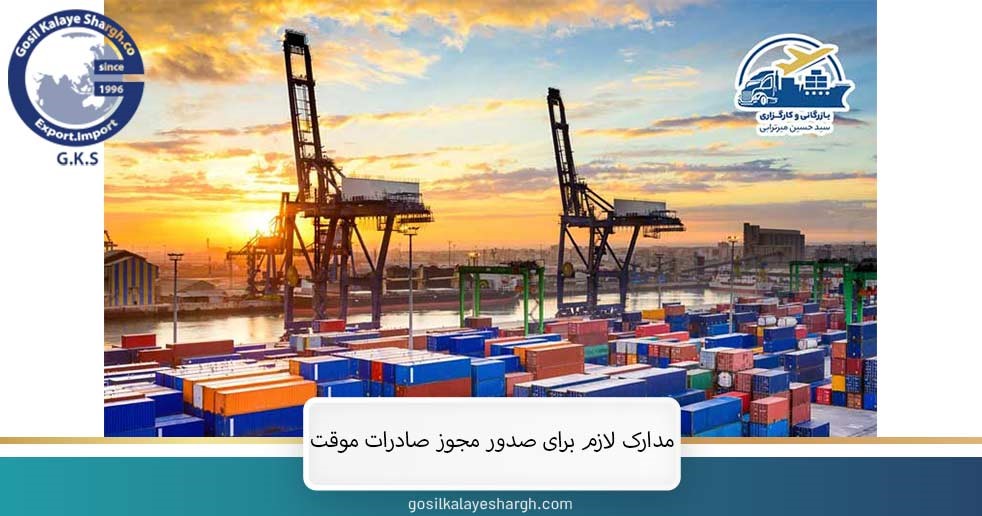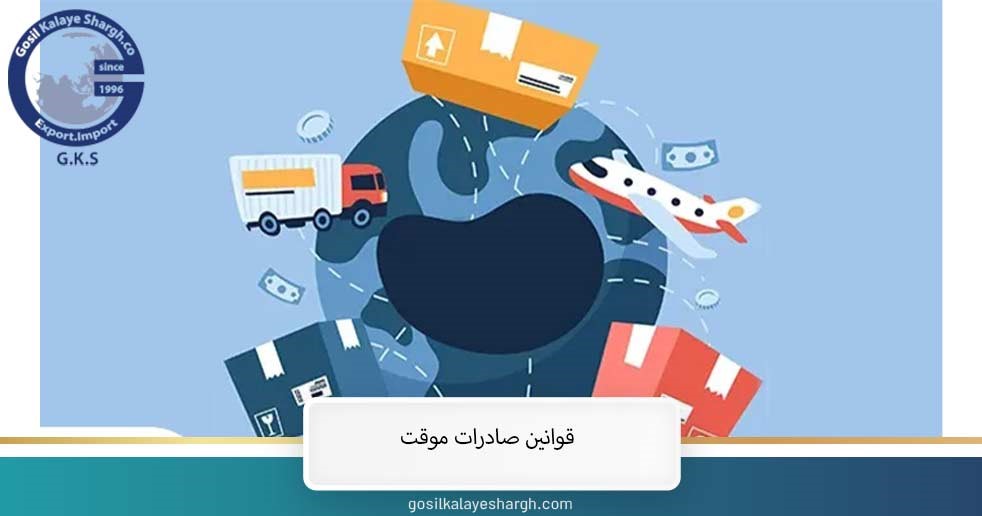This type of export not only helps to reduce financial risks, but also enables accurate assessment of foreign market demand and feedback from international customers. Considering the increase in competition in global markets, this method can be considered as an efficient tool for the development and growth of businesses.
What is definitive export?
When a product is exported to another country for the purpose of sale and consumption, it is said that export has taken place. For this type of export, a fixed and definite export certificate is issued. It is worth noting that definite export of goods is divided into two different types, including:
Definite commercial export
When the amount of goods shipped is large, it is called commercial definite export. This type is different from temporary exports.
Definitive non-commercial export
When the amount of goods sent is small and for example, it is exported for marketing or non-commercial use, it is called definitive non-commercial export.
Permanent export of goods
Permanent export of goods refers to a process in which goods are sent to other countries on a regular basis for sale and final consumption. This type of export is one of the most important and common methods of international trade that helps the economic growth of countries and increase foreign exchange earnings.
In order to carry out permanent exports, exporters must obtain the necessary licenses and certificates from the competent authorities, as well as comply with the standards and regulations of the destination country. Permanent export of goods not only creates new job opportunities, but also develops business relations and increases the share of international markets. Today, plastic export is very popular and is exported permanently.
The difference between temporary and permanent export
Definitive and temporary export are two main types of export that have major differences in international trade. Temporary export refers to the export of goods and services that are temporarily transferred from the exporting country to the importing country and are returned after some time.
در مقابل، صادرات قطعی به صادرات کالاها و خدماتی گفته میشود که بهطور دائمی از کشور صادرکننده به کشور واردکننده منتقل میشوند و نیازی به بازگشت آنها به کشور مبدا وجود ندارد.
This type of export includes tax and customs payments and is considered as a source of stable income for the exporting country. Keep in mind that cargo clearance requires compliance with its own rules.
Can the temporary export license be extended?
A temporary export license is usually issued for a specific period of time and is often renewable, if the conditions are met. The extension of this type of export license may depend on various factors, such as changes in market conditions, customer requests, or changes in export policies. In this case, it is necessary to provide the required information and documents and cooperate with the relevant authorities to update the license.
Required documents for issuing a temporary license
طبق ماده 129 قانون صادرات کالا گمرک ایران، افرادی که قصد دارند کالای خود را به طور موقت به خارج از کشور صادر کنند، باید در زمان مراجعه به گمرک اسناد زیر را برای دریافت مجوز ارائه دهند. پس از بررسی کالا توسط کارشناسان گمرک، مجوزهای لازم برای صادرات این نوع کالا صادر میشود. مدارک مورد نیاز برای صدور مجوز صادرات موقتی کالا از ایران عبارتند از:
- Goods ownership documents
- Necessary licenses based on the type of export goods
- Identification license issued by the police force for vehicles
Export goods in temporary export
Export goods in temporary shipment include two categories of consumer goods and permanent consumer goods. We will discuss these two in the following.
- Consumer goods
Goods such as sweets, chocolates and other food products that are produced inside the country are offered as commercial samples in foreign exhibitions. Some of these products will be offered free to exhibition visitors, while the other part will be sold. After the end of the exhibition and return to the country, the final export procedures for the sold products must be carried out, so that these procedures will include the export documentation and obtaining the necessary permits for the final shipment to the destination.
- Consumer durables
Durable consumer products such as household appliances and industrial machinery that are presented in foreign exhibitions, after being sold in the exhibition, need to complete the final export formalities so that they can return to the country of origin.
Also, in cases where the completion of a domestic product is not done due to the lack of necessary technologies in the country, the process of completing the product takes place abroad and after that, the product is returned to the country.
Validity period of temporary export license
The temporary export license is usually issued for 6 months, and in its text, the time allowed for the return of the goods to the country is mentioned. This license is issued after the evaluation and official seal of the goods by customs experts. If the owner of the goods does not export during the validity period of the license, he must apply for its extension.
This customs license can usually be extended for 3 months. There is no need to obtain a license from the Ministry of Industries and Mines for the temporary issuance of machinery and devices for repair or completion. The owners of the goods should only prepare a declaration in two copies and submit it to the customs so that the goods can be evaluated by the customs and the necessary deposit for issuing the license will be received from them.
Temporary export rules
Exporting goods temporarily requires compliance with the rules and regulations that are detailed in the following articles. All people who intend to temporarily export their goods outside of Iran in order to participate in international exhibitions or to repair devices and machinery, are obliged to comply with these rules.
- According to Article 71 of the Law on Customs Affairs
The customs procedure for the temporary export of goods is that the goods are allowed for specific purposes such as manufacturing, processing, repairing, completing, participating in exhibitions, personal use as vehicles, traffic between Iran and other countries, or machinery and equipment for performing technical services. and engineering are temporarily exported abroad and then returned to the country within the deadline set in the executive regulations of this law.
Note: The conditions, declaration and evaluation procedures, necessary documents and guarantee according to the provisions of this law will be specified in the executive regulations.
- According to Article 72 of the Customs Law
If the goods are not returned by the end of the stipulated period, the guarantee will be collected or the fulfillment of the obligation will be pursued. For goods whose outright export is prohibited or conditionally allowed, action will be taken based on the smuggling regulations.
Note 1: In the case of temporary export of goods that are temporarily exported and are not returned to the country within the specified deadline and are converted into permanent export according to legal regulations, they will not benefit from any refund or facilities related to permanent export.
Note 2: If the goods are delivered to the customs office within ten days after the end of the set deadline, the customs office can take action by receiving the fine stipulated in Article 109 of this law.
- According to Article 73 of the Law on Customs Affairs
If the seal and seal of the package and its contents are lost, or if the customs cannot recognize the authenticity of the goods, the sent goods are considered as imported goods and the provisions related to imported goods are applied.
- According to Article 74 of the Customs Law
Goods temporarily exported are exempted from paying import duties when returned. However, the parts, parts and accessories that are replaced during repair or a new part is added or added to the goods, will be subject to the payment of import duties.
Note: If the replacement of original parts or the addition of new parts is such that the product loses its originality, its clearance will require the completion of import formalities and the payment of import duties to the extent of the difference in the value of the imported and exported goods.
last word
Understanding the distinction between permanent and temporary exports is critical for businesses engaged in international trade. The commercial invoice plays an essential role in both types of exports and as a key document, it affects the product clearance from customs, tax obligations and regulatory compliance.
By accurately understanding the requirements of each type of export, businesses can more effectively and efficiently meet and manage the challenges of global trade. At Ghasil Karali Shargh, your product will be exported correctly and in the shortest possible time.

